Chess, a game of strategy and intellect, has been graced by numerous maestros over the centuries. From prodigious talents who emerged in their youth to stalwarts who have shaped the very fabric of the game, the world of chess boasts some of the best chess players of all time. In this post, we delve into the lives and achievements of the 46 most illustrious figures in chess history, celebrating their unparalleled contributions to this timeless board game.
Table of Contents
1. Akiba Rubinstein (1880-1961):

A Polish chess grandmaster, Rubinstein is regarded as one of the greatest players who never became the World Chess Champion. He was particularly renowned for his endgame skills, especially in rook endings. In his prime, he defeated top players like José Raúl Capablanca and Carl Schlechter. He was scheduled to play a World Chess Championship match against Emanuel Lasker in 1914, but it was cancelled due to World War I. Rubinstein’s later life was marked by mental health challenges. He was awarded the title of International Grandmaster in 1950. Source: Wikipedia
2. Alexander Alekhine (1892-1946):
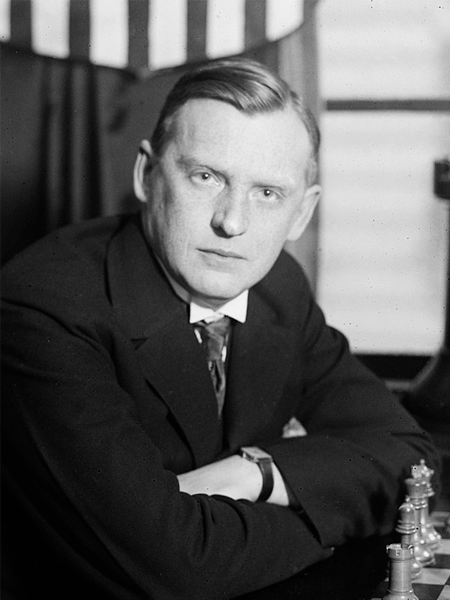
A Russian and later French chess player, Alekhine was the fourth World Chess Champion, holding the title in two separate reigns. By the age of 22, he was among the world’s elite players, dominating many tournaments in the 1920s. In 1927, he defeated José Raúl Capablanca to become the World Chess Champion. Alekhine was known for his aggressive and imaginative play, combined with profound positional and endgame understanding. He also contributed significantly to chess theory, with Alekhine’s Defence being named after him. Alekhine remains the only World Chess Champion to have died while holding the title. Source: Wikipedia
3. Emanuel Lasker (1868-1941):

A German chess player, mathematician, and philosopher, Emanuel Lasker held the title of World Chess Champion for an unprecedented 27 years, from 1894 to 1921. This remains the longest reign of any officially recognized World Chess Champion in history. Lasker was known for his unique and flexible approach to the game, often mystifying his contemporaries. He was also a prominent figure in other fields, contributing to mathematics and philosophy, and even developed his own board game called Lasca. Source: Wikipedia
4. José Raúl Capablanca (1888-1942):

A Cuban chess prodigy, Capablanca held the World Chess Championship title from 1921 to 1927. He was renowned for his exceptional endgame skill and speed of play. Born in Havana, he defeated Cuban champion Juan Corzo just days before his 13th birthday. His victory over Frank Marshall in 1909 led to his participation in the 1911 San Sebastian tournament, which he won. Capablanca’s style was influential, and he was undefeated from 1916 to 1924. He lost the title to Alexander Alekhine in 1927 and passed away in 1942 due to a brain hemorrhage. Source: Wikipedia
5. Mikhail Botvinnik (1911-1995):
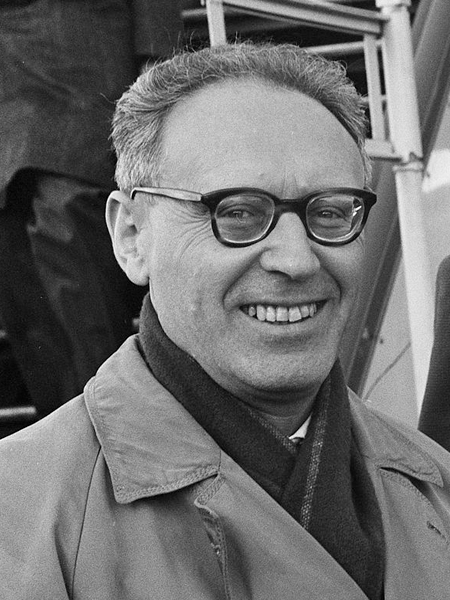
A Soviet and Russian chess grandmaster, Botvinnik was the sixth World Chess Champion, holding the title at various times between 1948 and 1963. He was also an electrical engineer and a pioneer in computer chess. Botvinnik was the first world-class player to emerge from the Soviet Union and played a pivotal role in the organization of chess, significantly contributing to the design of the World Chess Championship system post-World War II. He was instrumental in the Soviet Union’s dominance in top-class chess and mentored future World Champions like Anatoly Karpov, Garry Kasparov, and Vladimir Kramnik. Source: Wikipedia
6. Paul Morphy (1837-1884):

An American chess prodigy, Paul Morphy was widely acknowledged as the greatest chess master of his era, even though there was no formal world championship during his time. He dominated the First American Chess Congress in 1857, winning with significant margins. Morphy then traveled to Europe, challenging and defeating many of the leading players, including Adolf Anderssen of Germany. Known for his brilliant play, he was dubbed “The Pride and Sorrow of Chess” due to his early retirement from competitive chess. Morphy’s style was revolutionary, and he was considered far ahead of his time. Source: Wikipedia
7. Wilhelm Steinitz (1836-1900):

A Bohemian-Austrian and later American chess player, Wilhelm Steinitz was the first official World Chess Champion, holding the title from 1886 to 1894. He was also a highly influential writer and chess theoretician. Steinitz introduced a new positional style of play in the 1870s, which laid the foundation for modern chess. This style was initially controversial, leading to heated debates known as the “Ink War.” Despite his contributions to the game, Steinitz lived in poverty for most of his life. Source: Wikipedia
8. Akiva Eiger (1761-1837):
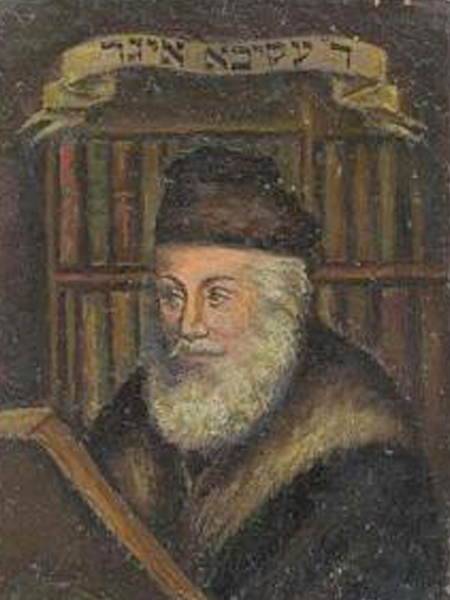
Akiva Eiger, also spelled Eger or known as Akiva Güns, was an outstanding Talmudic scholar, influential halakhic decisor, and a foremost leader of European Jewry during the early 19th century. He was a prominent figure in Orthodox Judaism and served as the rabbi of Märkisch Friedland in West Prussia from 1791 until 1815. Later, he became the rabbi of the city of Poznań. Eiger was a rigorous casuist of the old school, and his chief works were legal notes and responsa on the Talmud and the Shulchan Aruch. He was a staunch opponent of the Reform movement and believed in the primacy of religious education. Source: Wikipedia
9. Mikhail Chigorin (1850-1908):

A prominent Russian chess player, Mikhail Chigorin played two World Championship matches against Wilhelm Steinitz, losing on both occasions. He is often regarded as the last great player of the Romantic chess style and was a significant inspiration for the “Soviet chess school” that dominated the chess world in the mid to late 20th century. Chigorin’s style was characterized by a tactical prowess and an innovative approach to openings. He also contributed to the development of the Ruy Lopez and the Slav Defence. Despite his achievements, Chigorin faced health issues towards the end of his life and passed away in 1908. Source: Wikipedia
10. Svetozar Gligorić (1923-2012):

A Serbian and Yugoslav chess grandmaster and musician, Gligorić was a dominant figure in Yugoslav chess, winning the national championship a record twelve times. He was considered the best chess player ever from Serbia and was declared the best athlete of Yugoslavia in 1958. During the 1950s and 1960s, Gligorić was among the world’s top players, known for his engaging personality and his autobiography titled “I Play Against Pieces.” This philosophy emphasized playing the game without hostility toward the opponent. Gligorić also made significant contributions to opening theory, especially in the King’s Indian Defence and Ruy Lopez. Source: Wikipedia
11. Salo Flohr (1908-1983):
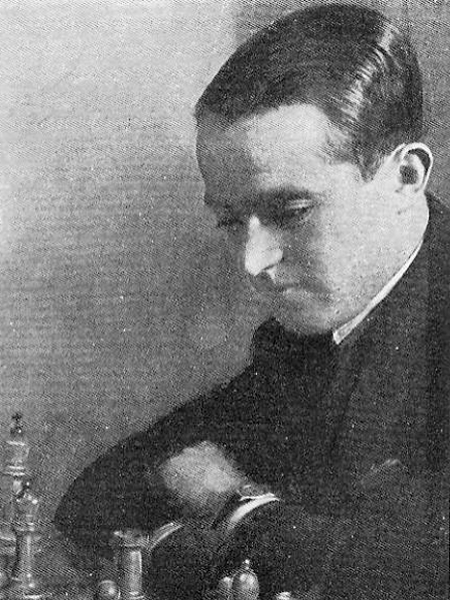
A Czechoslovak and Soviet chess player and writer, Salo Flohr was among the first recipients of the title International Grandmaster from FIDE in 1950. He was a dominant figure in many pre-World War II tournaments and was considered a contender for the World Championship by the late 1930s. However, his patient, positional style was surpassed by the more tactical methods of the younger Soviet players post-World War II. Born in Austria-Hungary, Flohr faced personal challenges early in life, being orphaned during World War I and later fleeing the German invasion of Czechoslovakia in 1938. He eventually settled in Moscow, where he continued his chess career and contributed to Soviet chess journalism. Source: Wikipedia
12. Howard Staunton (1810-1874):

An English chess master, Howard Staunton is widely regarded as the world’s strongest player from 1843 to 1851, particularly after his 1843 victory over Pierre Charles Fournier de Saint-Amant. Staunton was instrumental in promoting a chess set with standardized, easily distinguishable pieces – the Staunton pattern, which remains the standard for competitions today. He was the principal organizer of the first international chess tournament in 1851, establishing England as a leading chess center. Staunton was also a noted Shakespearean scholar and became a leading chess commentator from 1840 onwards. His contributions to chess theory and literature, including the “Chess-Players’ Handbook” (1847), had a lasting impact on the game. Source: Wikipedia
13. Miguel Najdorf (1910-1997)

Miguel Najdorf was a Polish-Argentinian chess grandmaster. Born on 15 April 1910 in Grodzisk Mazowiecki, Kingdom of Poland, Russian Empire, he was originally from Poland but found himself in Argentina when World War II began in 1939, where he decided to stay and settle. Najdorf was a leading world player in the 1940s and 1950s and is renowned for the Najdorf Variation, one of the most popular chess openings. He also set world records for simultaneous blindfold chess and remained an active chess player throughout his life. Najdorf passed away on 4 July 1997 in Málaga, Spain. Source: Wikipedia
14. Bent Larsen (1935-2010):
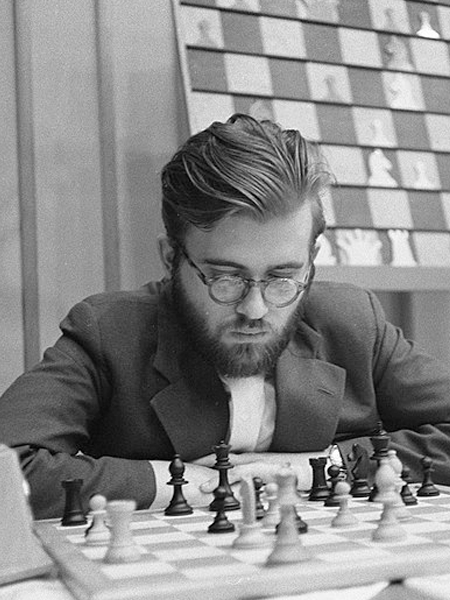
A Danish chess grandmaster and author, Bent Larsen was known for his imaginative and unorthodox style of play. He was the second strongest non-Soviet player, behind Bobby Fischer, during much of the 1960s and 1970s. Larsen was a six-time Danish Champion and a Candidate for the World Chess Championship on four occasions, reaching the semifinal three times. He achieved multiple victories over seven World Champions from 1948 to 1985 but had lifetime negative scores against them. Larsen’s unique approach to openings and his ability to throw opponents off balance made him a formidable player on the global stage. He continued to play in tournaments even in his later years, and despite facing health challenges, his passion for the game remained undiminished. Source: Wikipedia
15. Vasily Smyslov (1921-2010):

A Soviet and Russian chess grandmaster, Vasily Smyslov was the World Chess Champion from 1957 to 1958. He was a Candidate for the World Chess Championship on eight occasions, spanning from 1948 to 1985. Smyslov was known for his harmonious style of play and his exceptional endgame technique. He twice tied for first place at the USSR Chess Championships and holds the all-time record with 17 Chess Olympiad medals won. Even after the age of sixty, Smyslov remained active and successful in competitive chess. Apart from his chess achievements, he was also an accomplished baritone singer. Source: Wikipedia
16. Samuel Reshevsky (1911-1992):
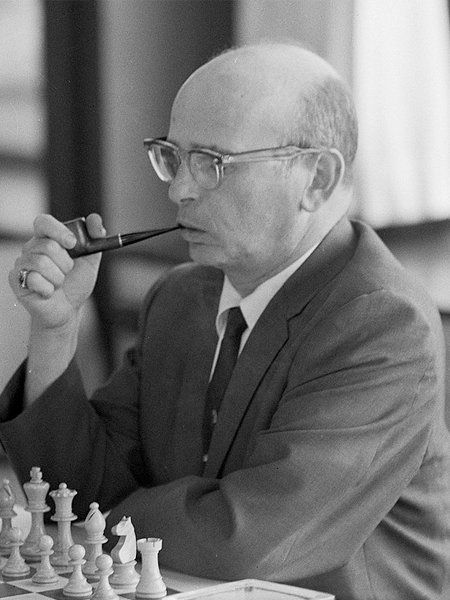
Samuel Reshevsky, originally from Poland, was a chess prodigy who later became a leading American chess grandmaster. He was a contender for the World Chess Championship from the mid-1930s to the mid-1960s, tying for third place in the 1948 World Chess Championship tournament and tying for second in the 1953 Candidates tournament. Reshevsky was an eight-time winner of the US Chess Championship, a record he shares with Bobby Fischer. He was also an accountant by profession and a prolific chess writer. Throughout his career, Reshevsky was known for his tenacious defensive skills and deep understanding of complex positions. Source: Wikipedia
17. Tigran Petrosian (1929-1984):
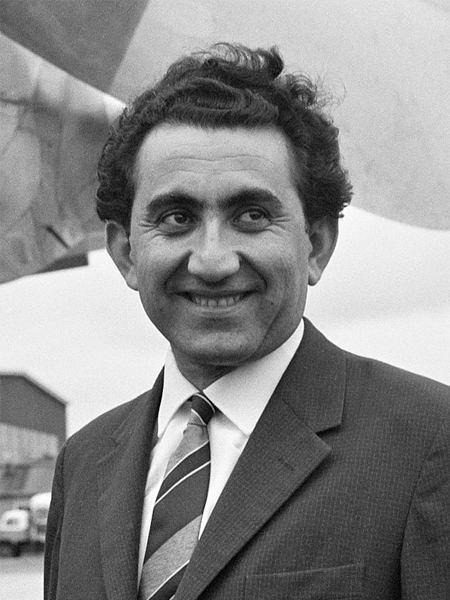
Tigran Petrosian was a Soviet-Armenian chess grandmaster and held the title of World Chess Champion from 1963 to 1969. He was often referred to as “Iron Tigran” due to his nearly impenetrable defensive playing style, which prioritized safety above all. Petrosian was a candidate for the World Chess Championship on multiple occasions and successfully defended his title in 1966 against Boris Spassky, only to lose it to Spassky in 1969. Apart from his achievements on the board, Petrosian played a significant role in popularizing chess in Armenia. Source: Wikipedia
18. Boris Spassky (1937-present):

Boris Vasilievich Spassky is a Russian chess grandmaster who became the tenth World Chess Champion, holding the title from 1969 to 1972. He played three world championship matches: losing to Tigran Petrosian in 1966, defeating Petrosian in 1969 to become world champion, and then losing to Bobby Fischer in a renowned match in 1972. Spassky won the Soviet Chess Championship twice and was a World Chess Championship candidate on seven occasions. He immigrated to France in 1976 and became a French citizen in 1978. Although he continued to participate in tournaments, he was no longer a primary contender for the world title. In 2012, Spassky returned to Russia from France. Source: Wikipedia
19. Bobby Fischer (1943-2008):
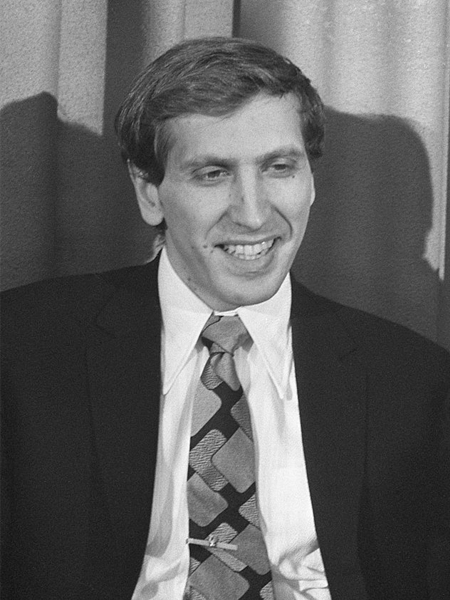
Bobby Fischer was an American chess grandmaster and the eleventh World Chess Champion. A prodigious talent, Fischer won his first of a record eight US Championships at just 14 years old. In 1972, he captured the World Chess Championship by defeating Boris Spassky of the USSR in a match held in Reykjavík, Iceland, which was widely publicized as a Cold War confrontation. However, in 1975, Fischer refused to defend his title due to disagreements with FIDE, the international chess governing body. After this, he largely withdrew from the public eye, only to reemerge in 1992 for an unofficial rematch against Spassky. Fischer made significant contributions to chess, including the invention of Fischer random chess (or Chess960) and his book “My 60 Memorable Games” is considered a classic in chess literature. Source: Wikipedia
20. Viktor Korchnoi (1931-2016):
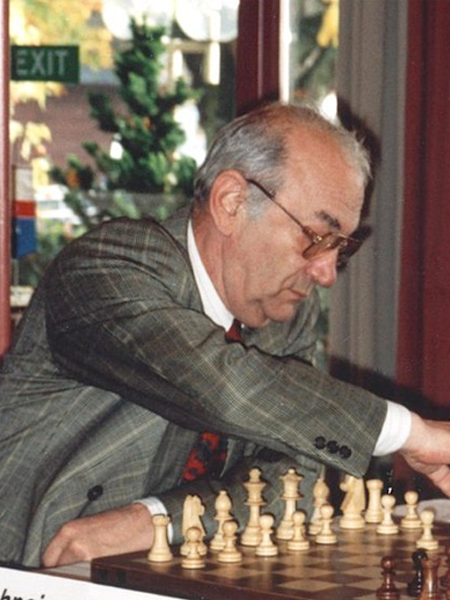
Viktor Korchnoi was a Soviet and later Swiss chess grandmaster and writer, often considered one of the strongest players never to have become World Chess Champion. Born in the Soviet Union, Korchnoi defected to the Netherlands in 1976 and later resided in Switzerland from 1978, becoming a Swiss citizen. He played four matches against GM Anatoly Karpov, three of which were official. In 1974, he lost the Candidates Tournament final to Karpov, who was declared World Champion in 1975 when Bobby Fischer declined to defend his title. Korchnoi then won two consecutive Candidates cycles to qualify for World Chess Championship matches with Karpov in 1978 and 1981 but lost both. He was a candidate for the World Championship on ten occasions and won the USSR Chess Championship four times. Korchnoi continued to play competitive chess into his old age, winning the 2006 World Senior Chess Championship at age 75. Source: Wikipedia
21. Anatoly Karpov (1951-present):

Anatoly Karpov is a Russian and former Soviet chess grandmaster, former World Chess Champion, and politician. He held the title of the 12th World Chess Champion from 1975 to 1985. Karpov was a three-time World Champion (1993, 1996, 1998), twice World Chess champion as a member of the USSR team (1985, 1989), and a six-time winner of Chess Olympiads as a member of the USSR team (1972, 1974, 1980, 1982, 1986, 1988). The International Association of Chess Press awarded him nine Chess Oscars. Karpov’s chess tournament successes include over 160 first-place finishes. He had a peak Elo rating of 2780, and his 102 total months at world number one is the third-longest of all time, behind Magnus Carlsen and Garry Kasparov. Karpov is also an elected Member of the State Duma and has chaired the Commission for Ecological Safety and Environmental Protection of the Civic Chamber of the Russian Federation since 2006. Source: Wikipedia
22. Mikhail Tal (1936-1992):
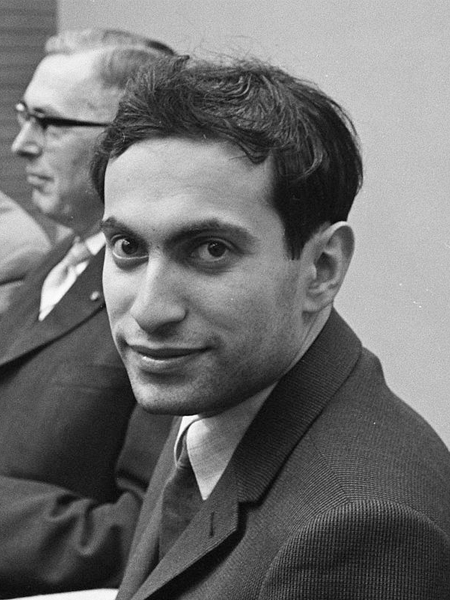
Mikhail Tal, often referred to as “The Magician from Riga”, was a Soviet-Latvian chess player and the eighth World Chess Champion. He is celebrated for his creative genius and is considered one of the most influential chess players in history. Tal’s play was characterized by its daring combinatorial style, marked by improvisation and unpredictability. He held the World Chess Championship title from 1960 to 1961, becoming the youngest-ever World Champion at the age of 23, a record later surpassed by Garry Kasparov. Tal’s games were filled with tactical fireworks, and he was known for his ability to create complications out of seemingly simple positions. He also held the record for the longest unbeaten streak in competitive chess with 95 games until it was broken in 2018. Tal passed away in 1992, but his legacy continues to inspire chess enthusiasts worldwide. Source: Wikipedia
23. Lev Alburt (1945-present):
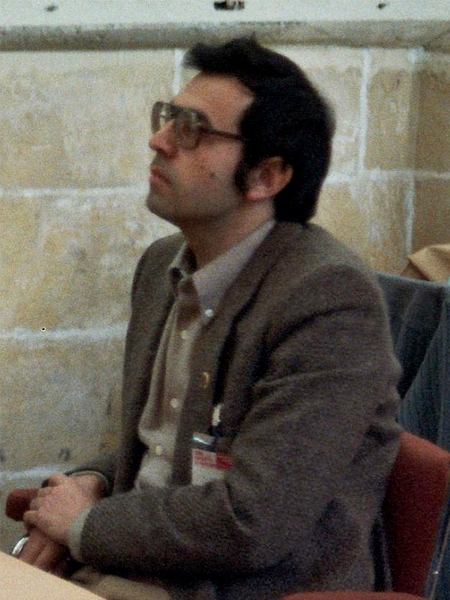
Lev Alburt is a Ukrainian-American chess grandmaster, writer, and coach. Born in Orenburg, Russia, he became a three-time Ukrainian Chess Champion. After defecting to the United States in 1979, he secured the U.S. Chess Championship title three times, in 1984, 1985, and 1990. Alburt also won the U.S. Open Chess Championship in 1987 and 1989. He has authored numerous best-selling chess books and served on the Board of Directors of the United States Chess Federation from 1985 to 1988. In addition to his achievements on the board, Alburt has been a dedicated chess coach, training several Wall Street figures and other prominent individuals. Source: Wikipedia
24. Garry Kasparov (1963-present):

Garry Kasparov is a Russian chess grandmaster, former World Chess Champion (1985–2000), political activist, and writer. Born as Garik Kimovich Weinstein, he became the youngest-ever undisputed world champion in 1985 at age 22 by defeating then-champion Anatoly Karpov. His peak chess rating of 2851, achieved in 1999, was the highest recorded until being surpassed by Magnus Carlsen in 2013. From 1984 until his retirement from regular competitive chess in 2005, Kasparov was ranked world no. 1 for a record 255 months overall. He also holds records for the most consecutive professional tournament victories (15) and Chess Oscars (11). In 1997, he became the first world champion to lose a match to a computer under standard time controls when he was defeated by the IBM supercomputer Deep Blue. Since retiring from chess, Kasparov has devoted his time to writing and politics, opposing the administration and policies of Vladimir Putin. He has authored the book series “My Great Predecessors” and has been involved in various political and human rights activities. Source: Wikipedia
25. Judit Polgár (1976-present):

Judit Polgár is a Hungarian chess grandmaster and is widely regarded as the strongest female chess player of all time. In 1991, at the age of 15 years and 4 months, she achieved the title of Grandmaster, breaking the record previously held by Bobby Fischer. She was the youngest player ever to break into the top 100 players rating list, ranking No. 55 at the age of 12. Polgár is the only woman to have been a serious candidate for the World Chess Championship and is also the only woman to have surpassed 2700 Elo, reaching a peak world ranking of No. 8 in 2004. She has defeated eleven current or former world champions in either rapid or classical chess, including Magnus Carlsen, Anatoly Karpov, Garry Kasparov, and Vladimir Kramnik. On 13 August 2014, she announced her retirement from competitive chess. In 2021, Polgár was inducted into the World Chess Hall of Fame. Source: Wikipedia
26. Vladimir Kramnik (1975-present):

Vladimir Kramnik is a renowned Russian chess grandmaster. He held the title of the Classical World Chess Champion from 2000 to 2006 and became the undisputed World Chess Champion from 2006 to 2007. Kramnik’s significant achievements include defeating Garry Kasparov in 2000 and successfully defending his title against Peter Leko in 2004. He also played a pivotal role in the reunification of the World Chess Championship, defeating FIDE World Champion Veselin Topalov in a unification match in 2006. This victory made Kramnik the first undisputed World Champion since the FIDE and Classical titles split in 1993. In 2007, he participated in the World Chess Championship tournament, finishing second to Viswanathan Anand. Despite his numerous accomplishments, Kramnik announced his retirement from professional chess in January 2019, expressing his intention to focus on chess-related educational projects. Source: Wikipedia
27. Viswanathan Anand (1969-present):
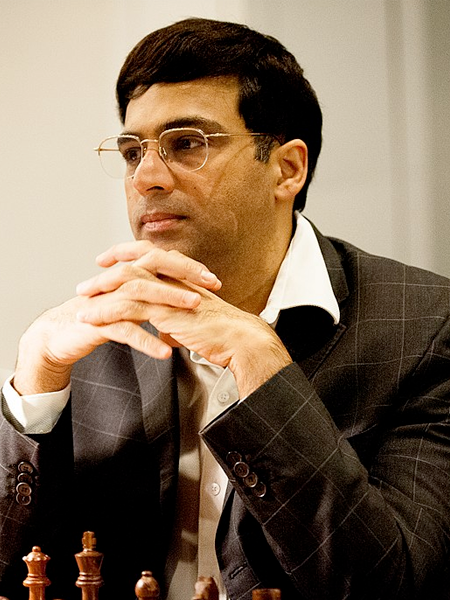
Viswanathan “Vishy” Anand is an iconic Indian chess grandmaster and a former five-time World Chess Champion. Born on 11 December 1969 in Mayiladuthurai, Tamil Nadu, Anand became the first grandmaster from India in 1988. He has a remarkable record in the world of chess, having defeated notable players like Alexei Shirov, Vladimir Kramnik, Veselin Topalov, and Boris Gelfand to claim or defend the World Chess Championship title. Anand’s rapid playing speed earned him the nickname “Lightning Kid” during his early career. He is also celebrated for his achievements in rapid and blitz chess, having won the FIDE World Rapid Chess Championship in 2003 and 2017. Beyond his chess accomplishments, Anand has been honored with India’s highest sporting award, the Khel Ratna, in 1991-92 and the Padma Vibhushan, India’s second-highest civilian award, in 2007. Source: Wikipedia
28. Veselin Topalov (1975-present):
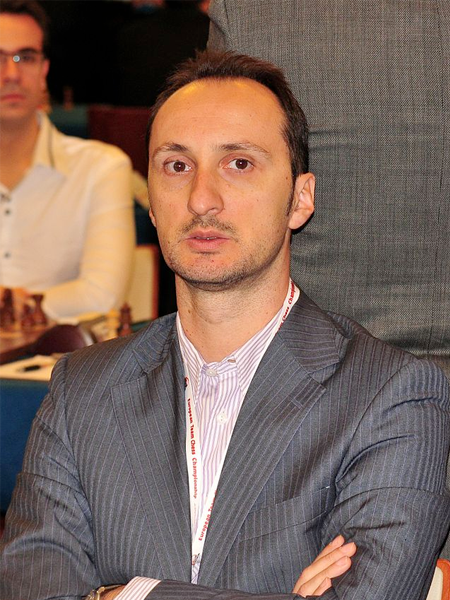
Veselin Topalov is a prominent Bulgarian chess grandmaster and a former World Chess Champion. Born on 15 March 1975 in Ruse, Bulgaria, Topalov clinched the FIDE World Chess Championship in 2005. However, he lost his title in the World Chess Championship 2006 to Vladimir Kramnik. Topalov has had a distinguished career, challenging Viswanathan Anand for the World Chess Championship in 2010, though he was defeated 6½–5½. He was ranked as the world number one from April 2006 to January 2007 and regained this top ranking from October 2008 to January 2010. His peak rating reached 2816 in July 2015, making him one of the highest FIDE-rated players of all time. Throughout his career, Topalov has participated in numerous prestigious tournaments, including the Chess Olympiads, Linares, Corus, Dortmund, and many others. Source: Wikipedia
29. Alexei Shirov (1972-present):

Alexei Shirov is a Latvian and Spanish chess grandmaster who was ranked number two in the world in 1994. Born on 4 July 1972 in Riga, Latvia, Shirov has had a distinguished career, including a victory against Vladimir Kramnik in 1998 to qualify for a classical world championship match against Garry Kasparov, which unfortunately never took place due to sponsorship issues. Shirov is known for his aggressive and imaginative style, leading to comparisons with the legendary Mikhail Tal, under whom he studied during his youth. He has won numerous international tournaments and is also an accomplished author, having written books on his best games. Source: Wikipedia
30. Vladimir Petrov (1907-1942):
Vladimir Petrov was a notable Latvian chess player. He was a strong grandmaster-level player during the 1930s and early 1940s. Petrov is best remembered for his contributions to opening theory, particularly the Petrov Defense (or Russian Defense) in the e4 e5 openings. He achieved significant successes in international tournaments and represented Latvia in Chess Olympiads. Unfortunately, his life was tragically cut short during World War II.
31. Vugar Gashimov (1986-2014):

Vugar Gashimov was an Azerbaijani chess grandmaster known for his prowess in blitz chess. Born on 24 July 1986 in Baku, Azerbaijan, Gashimov achieved a peak ranking of No. 6 in the world in November 2009. He won the Athens 2005 (Acropolis International) and tied for first at the Cappelle-la-Grande open in 2007 and 2008. Additionally, he clinched the Reggio Emilia tournament in 2010-11. Gashimov represented Azerbaijan in the Chess Olympiads of 2002, 2004, 2006, and 2008 and played a significant role in the Azerbaijani team’s gold medal win at the European Team Chess Championship in 2009. Tragically, Gashimov passed away on 11 January 2014 due to complications from a brain tumor. His legacy is remembered through the Gashimov Memorial chess tournament. Source: Wikipedia
32. Teimour Radjabov (1987-present):

Teimour Radjabov is an Azerbaijani chess grandmaster, born on 12 March 1987 in Baku, Azerbaijan. A former child prodigy, he achieved the grandmaster title in March 2001 at the age of 14, making him the second-youngest grandmaster in history at the time. In 2003, Radjabov gained international attention by defeating then-world No. 1 Garry Kasparov in the Linares tournament. He also secured victories over former world champions Viswanathan Anand and Ruslan Ponomariov that same year. Radjabov’s peak rating was 2793 in November 2012, ranking him as the 15th-highest rated player in chess history. He has participated in the Candidates Tournament multiple times and has won numerous international tournaments, including the 2019 FIDE World Cup. Source: Wikipedia
33. Nona Gaprindashvili (1941-present):
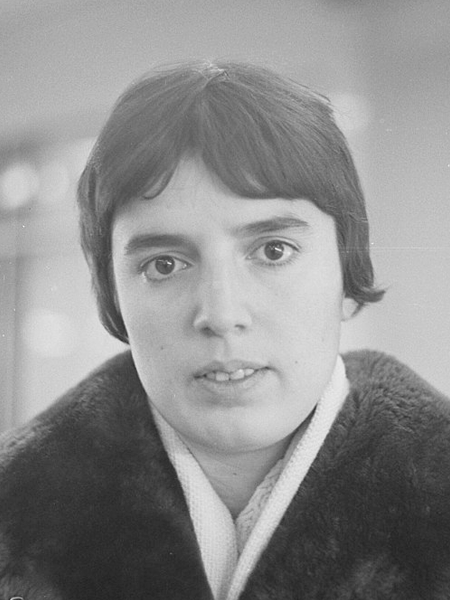
Nona Gaprindashvili is a Georgian chess grandmaster and was the first woman to be awarded the FIDE Grandmaster title in 1978. Born on 3 May 1941 in Zugdidi, Georgian SSR, she held the title of Women’s World Chess Champion from 1962 to 1978. Gaprindashvili has a storied career, having successfully defended her title multiple times against formidable opponents. She played for the Soviet Union in numerous Women’s Chess Olympiads and was a significant contributor to the USSR team that dominated the Women’s Olympiads of the 1980s. Gaprindashvili has won 25 medals in the Olympiads, including eleven team gold medals and nine individual gold medals. Beyond her achievements in women’s chess, she has also competed successfully in men’s tournaments and was the first woman to earn a norm for the title of International Grandmaster. In recognition of her contributions to chess and her representation of Georgia on the international stage, she was awarded the Presidential Order of Excellence in 2015. Source: Wikipedia
34. Lajos Portisch (1937-present):

Lajos Portisch is a renowned Hungarian chess grandmaster. Born on 4 April 1937 in Zalaegerszeg, Kingdom of Hungary, Portisch’s positional style of play earned him the moniker “the Hungarian Botvinnik.” He was one of the strongest non-Soviet players from the early 1960s to the late 1980s. Portisch participated in twelve consecutive Interzonals from 1962 to 1993 and qualified for the World Chess Championship Candidates Cycle a total of eight times (1965, 1968, 1974, 1977, 1980, 1983, 1985, and 1988). He set several records in Chess Olympiads and won or shared the Hungarian Chess Championship title eight times (1958, 1959, 1961, 1964, 1965, 1971, 1975, and 1981). Portisch also clinched many international tournaments throughout his career. In 2004, he was honored with the title of ‘Nemzet Sportolója’ (Sportsman of the Nation), which is Hungary’s highest national sports achievement award. Apart from chess, Portisch has a passion for singing operatic arias and possesses a commendable baritone voice. Source: Wikipedia
35. Lajos Steiner (1903-1975):
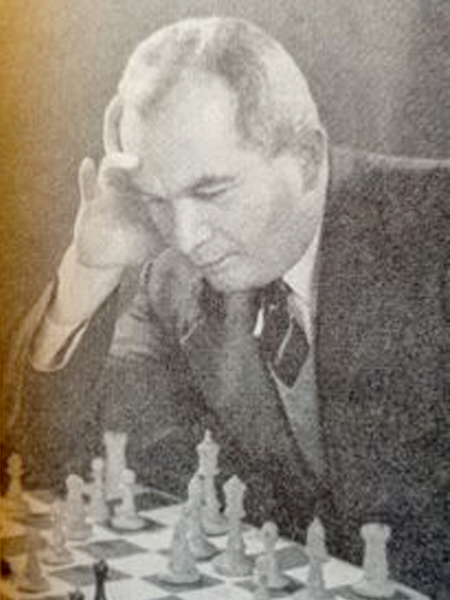
Lajos Steiner was a Hungarian-born Australian chess master. Born on 14 June 1903 in Nagyvárad (now Oradea), Steiner was one of four children of Bernat Steiner, a mathematics teacher. He was educated at the Technical High School in Budapest and graduated in 1926 with a diploma in mechanical engineering from the Technikum Mittweida in Germany. Steiner achieved significant success in various international tournaments during the 1920s and 1930s. He played for Hungary in four Chess Olympiads and won individual bronze in Prague, as well as a team gold medal and individual silver medal in Munich. Steiner emigrated to Australia in 1939 and went on to win the Australian Chess Championship four times (1945, 1946/47, 1952/53, and 1958/59). He also secured the New South Wales title nine times. Steiner was awarded the International Master (IM) title in 1950. Source: Wikipedia
36. David Bronstein (1924-2006):

David Ionovich Bronstein was a Soviet chess grandmaster who came close to becoming the World Chess Champion in 1951. Born on 19 February 1924 in Bila Tserkva, Ukrainian SSR, Soviet Union, he was a leading world player during the 1940s and 1950s. Bronstein is renowned for his creative and tactical style, as well as for his contributions to opening theory. He co-authored one of the most famous chess books, “Zurich International Chess Tournament 1953.” Bronstein passed away on 5 December 2006 in Minsk, Belarus. Source: Wikipedia
37. Boris Gulko (1947-present):

Boris Franzevich Gulko is a Soviet-American chess grandmaster, born on 9 February 1947 in Erfurt, East Germany. He is notably the only chess player to have won both the Soviet Chess Championship and the U.S. Chess Championship. Gulko has a remarkable positive score against the legendary Garry Kasparov. He and his wife, Anna Akhsharumova, a Woman Grandmaster, became prominent Soviet Refuseniks, facing challenges and restrictions in their chess careers until the period of glasnost. After emigrating to the U.S. in 1986, Gulko clinched the U.S. Chess Championship titles in 1994 and 1999. He has also been an active voice against anti-semitic discrimination in the chess world. Source: Wikipedia
38. Gata Kamsky (1974-present):
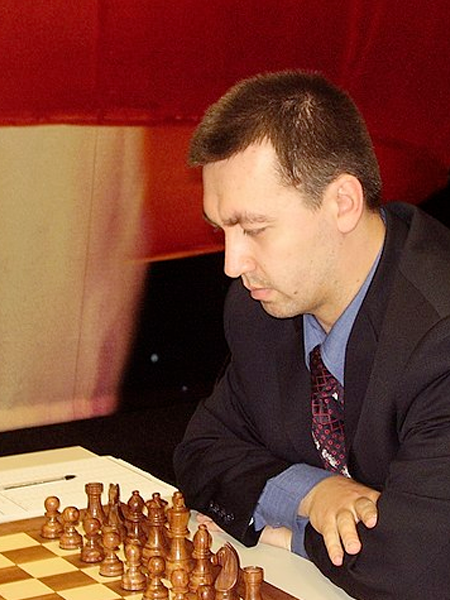
Gata Kamsky is an American chess grandmaster of Tatar descent. Born in 1974, he is a prominent figure in the chess world, having represented both the Soviet Union and the United States in international competitions. Kamsky has competed in multiple Chess Olympiads and has achieved significant successes throughout his career. He is known for his deep understanding of the game and his tenacious playing style. Kamsky has also pursued academic endeavors, having attended Brooklyn College and Touro Law Center. Source: Wikipedia
39. Alexander Grischuk (1983-present):

Alexander Grischuk is a distinguished Russian chess grandmaster. Born on October 31, 1983, in Moscow, Russian SFSR, Soviet Union, he has been a prominent figure in the chess world. Grischuk clinched the Russian championship in 2009 and has secured the title of world blitz chess champion three times (2006, 2012, and 2015). He has participated in five Candidates Tournaments, notably reaching the final in 2011. Grischuk also advanced to the semifinals of the 2000 FIDE World Championship. In team events, he has won multiple medals at Chess Olympiads and the World Team Chess Championship. Source: Wikipedia
40. Shakhriyar Mamedyarov (1985-present):

Shakhriyar Mamedyarov, known internationally as an Azerbaijani chess grandmaster, was born on 12 April 1985 in Sumgait, Azerbaijan SSR, Soviet Union. As of August 2023, he is ranked No. 1 in Azerbaijan and No. 13 in the world. His peak rating of 2820 makes him the sixth-highest-rated player in chess history. Mamedyarov has competed in the Candidates Tournament multiple times, with notable placements in 2011, 2014, and 2018. He is a two-time World Junior Champion (2003 and 2005) and was the World Rapid Champion in 2013. Mamedyarov has also achieved success in team events, winning gold at the 2012 Chess Olympiad on the third board and being a three-time European Team Champion (2009, 2013, 2017) with Azerbaijan. His victories in individual tournaments include the Tal Memorial, Shamkir Chess, and the Biel Chess Festival, where he defeated reigning World Champion Magnus Carlsen in 2018. Source: Wikipedia
41. Victor Bologan (1971-present):

Victor (Viorel) Bologan is a Moldovan chess grandmaster and author. Born on 14 December 1971 in Chişinău, Moldavian SSR, Soviet Union, Bologan has made significant contributions to the world of chess. He won the first two editions of the Poikovsky Karpov International Tournament in 2000 and 2001 and tied for first in the same tournament in 2005 and 2015. In 2003, he emerged victorious in the Aeroflot Open and the Dortmund Sparkassen Chess Meeting. Bologan also clinched the 2005 Canadian Open Chess Championship and tied for first place in the 2006 Aeroflot Open. He has represented Moldova in the Chess Olympiad from 1992 to 2014. Apart from his achievements on the chessboard, Bologan has penned several books and has made significant contributions to chess literature. Source: Wikipedia
42. Alexander Morozevich (1977-present):

Alexander Sergeyevich Morozevich is a prominent Russian chess player. Born on 18 July 1977 in Moscow, Russian SFSR, Soviet Union, Morozevich has been a notable figure in the chess community. He was awarded the title of Grandmaster in 1994. Morozevich is a two-time World Championship candidate (2005, 2007) and has represented Russia in seven Chess Olympiads, securing numerous team and board medals. He has won the Melody Amber tournament multiple times (alone in 2002, shared in 2004, 2006, and 2008) and the Biel tournament several times (2003, 2004, 2006). Known for his aggressive and unconventional playing style, Morozevich reached his peak ranking as the second-best player in the world in July 2008. Source: Wikipedia
43. Hikaru Nakamura (1987-present):

Hikaru Nakamura is a celebrated American chess grandmaster, recognized for his exceptional skills in both classical and rapid chess formats. Born on December 9, 1987, in Hirakata, Osaka Prefecture, Japan, Nakamura has achieved numerous accolades throughout his chess career. In 2016, he clinched victory at the Gibraltar Chess Festival for the second consecutive year and also triumphed at the Zurich Chess Challenge. The following year, he won the Tradewise Gibraltar Chess Festival, showcasing his consistent performance. Nakamura’s prowess is not limited to classical chess; he has also made a significant mark in online rapid and blitz chess formats. In 2018, he secured second place in the Chess.com Speed Chess Championships, demonstrating his versatility across different chess formats. Source: Wikipedia
44. Levon Aronian (1982-present):

Levon Aronian is an esteemed Armenian-born chess grandmaster, now representing the United States. Born on 6 October 1982 in Yerevan, Armenia, Aronian has been a dominant figure in the chess world for many years. He has won numerous international tournaments, including the Saint Louis Rapid & Blitz and the Gibraltar Chess Festival. In 2021, Aronian announced his decision to switch federations from Armenia to the United States, citing various reasons including “the state’s absolute indifference towards Armenian chess.” Despite facing personal challenges, including the tragic loss of his wife Arianne Caoili in 2020, Aronian continues to be a formidable presence in the chess community. His contributions to the game and his unique playing style have earned him respect and admiration from peers and fans alike. Source: Wikipedia
45. Max Euwe (1901-1981):

Dr. Max Euwe was a Dutch chess grandmaster who became the fifth World Chess Champion, reigning from 1935 to 1937. Born on May 20, 1901, in Amsterdam, Netherlands, Euwe was not only a top chess player but also a respected mathematician and author. He made significant contributions to both chess theory and literature, penning over 70 chess books. His logical and systematic approach to the game was evident in his play and writings. Euwe served as the president of FIDE, the international chess federation, from 1970 to 1978, contributing immensely to the global growth of chess. Source: Wikipedia
46. Magnus Carlsen (1990-present):

Magnus Carlsen, born on 30 November 1990 in Tønsberg, Norway, is a Norwegian chess grandmaster and the reigning World Chess Champion. Widely regarded as one of the greatest chess players of all time, Carlsen achieved the title of grandmaster in 2004, at the age of 13 years and 148 days, making him the third-youngest grandmaster in history. He ascended to the world No. 1 ranking in 2010 and has held the World Chess Championship title since 2013. Carlsen’s intuitive and aggressive style of play, combined with his deep understanding of positional nuances, has made him a dominant force in the chess world. He has also made significant contributions to the popularization of chess, particularly through online platforms and rapid/blitz formats. Source: Wikipedia
Affiliate Disclosure
Some of the links on Chesspert.com are affiliate links. This means that we may earn a small commission if you click through and make a purchase, at no additional cost to you. Please note that our product reviews and roundups are independent, and the affiliate relationships do not influence our content in any way.
Chesspert.com is a participant in the Amazon Services LLC Associates Program, an affiliate advertising program designed to provide a means for sites to earn advertising fees by advertising and linking to Amazon.com.
Chesspert.com is also a participant in the GammonVillage Inc. Affiliate Program, an affiliate advertising program designed to provide a means for sites to earn advertising fees by advertising and linking to GammonVillage.com.
Amazon and the Amazon logo are trademarks of Amazon.com, Inc. or its affiliates. GammonVillage is a trademark of GammonVillage Inc. or its affiliates.
Our passion for board games extends far beyond the chess table. We’ll be your trusted companion, on a journey through the enchanting realms of not only chess but also backgammon, dominoes, mahjong, checkers, and a diverse array of other captivating board games.
Whether you’re in search of the ideal chess set, luxury backgammon sets, a chinese checkers set, a checkers set, or if you’re seeking the excitement of a thrilling game of mahjong solitaire, we’ll guide you along the way.
In partnership with our affiliates, we bring you an extensive selection of board games and past times to explore and enjoy.
Dive into our extensive collection of guides and reviews, and unlock the joy and exhilaration that board games offer. From exquisitely crafted game pieces to the essential accessories that elevate your gaming experience, we’re here to guide you through it all with ease and delight.
Join us in celebrating the timeless allure and camaraderie that these games nurture, one post at a time!






